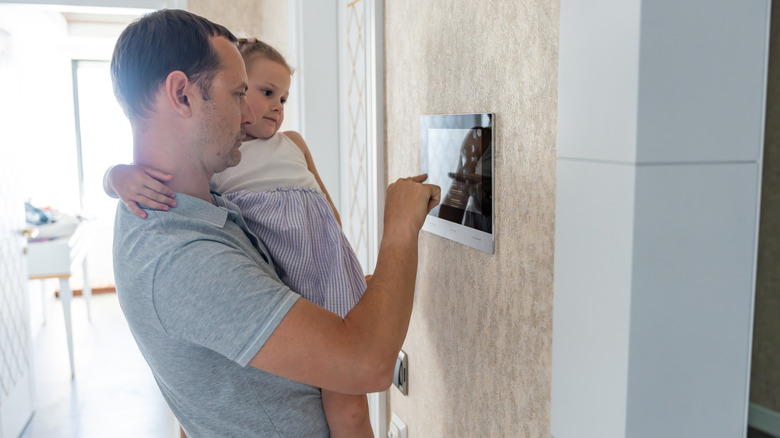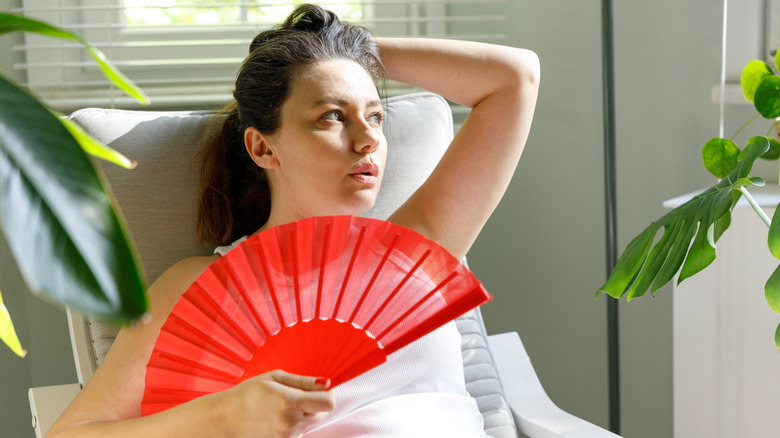The Best Temperature To Set Your AC To In Summer For New Jersey Residents
Summer months can be brutal for many U.S. states, and New Jersey is no exception. While the statewide average temperature in July 2024 was around 77 degrees Fahrenheit, according to the Rutgers NJ Weather Network, some townships like West Deptford have seen highs in the 90s. Cities including Hammonton, Cape May Court House, and Vineland also experience some of the higher temperatures, and since June through August can be uncomfortably warm, you will want to make your home as cool and comfortable as possible.
According to Energy Star, the best AC setting for New Jersey homeowners during summertime is 78 degrees Fahrenheit when you're awake and home (such as mornings and evenings) if you're looking to conserve energy and keep your power bills low. When you're away during the day, it's recommended that you set the thermostat to 85 degrees Fahrenheit, and when you're sleeping, 82 degrees Fahrenheit is advised. But as many people know, once you bump your thermostat above a certain threshold, often around 73 to 74 degrees Fahrenheit, the heat builds up in your home and becomes hard to drive out.
If Energy Star's guidelines seem too warm, the U.S. Department of Energy suggests choosing a temperature that you find comfortable while minimizing the indoor-outdoor difference to save on electricity. If you want to keep your home cooler during New Jersey's summer months without racking up a high electric bill, there are a few ways to keep your home cool without solely relying on your air conditioner.
Cool down your Jersey home with less energy use
While your AC might be the first thing you turn to for staying cool during New Jersey's summer months, there are other ways to beat the heat that don't rely on electricity. Window attachments, coverings, and treatments can help keep the outdoor heat from getting in. Think magnetic insulating panels or blackout curtains designed to obstruct heat. You can also try coverings like shades or screens that still let light through while limiting it, helping reduce heat transfer through the glass.
Ceiling and floor fans are another simple solution. They create a "wind chill" effect that helps cool your body and eliminate hot spots in rooms with poor air circulation. Just keep in mind that fans don't actually lower the room's temperature and only move air around, so you can turn them off when you're not home. That said, fans use far fewer watts per hour than your AC, so they can help conserve energy and reduce your reliance on the air conditioner.
Aside from home add-ons, small updates can also improve your home's ability to keep the scorching summer heat from getting in. These methods include sealing any gaps or cracks around windows and replacing old or worn weatherstripping to prevent air leaks and keep your home cooler. And to make sure your AC runs efficiently, remember to change the air filter as frequently as recommended for your specific model. It's also a good idea to have your HVAC system serviced every spring and fall, as recommended by Energy Star, to ensure that everything is working properly. With those precautions taken, even the hottest days of summer can be comfortable and relaxing for the whole family.

